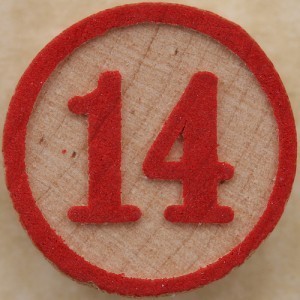Making a Dirty Splash in a Little Puddle: An Attempt to Amend BC 14 (3)
At this point, you are possibly thinking: hooo boy, here we go again, some public leaders in the church color outside the lines and get their knuckles rapped, so their defenders haul out the Ninth Commandment to protect them. It happens all the time. How many writers and speakers and theologians don’t complain, when their views are suspected of being heterodox, of being “misunderstood,” or “misrepresented,” and accuse their critics of violating the Ninth Commandment? Is there anything new under the sun?
Well, perhaps.
By now, if you’re tracking with this series, you’ve likely read the entire PCRC/COW proposal to revise BC 14.
The headline supporting arguments used to buttress this proposal invoke—repeatedly, unashamedly, and loudly—the names of two persons whose views are alleged, along with their sympathizers, to be endangering the gospel among the CanRCs.
(Incidentally, in direct contrast to this consistory and classis, I [an outsider] will adopt and follow the hitherto universal CanRC idiosyncrasy of naming these individuals “Br. A.” and “Br. J.” In addition, I offer a free coffee from Tim Hortons to anyone who can spot any occurrence, in the proposal of this CanRC consistory and classis, of the term “brother” in reference to these two individuals who are members in good standing in their respective CanRCs.)
In this official ecclesiastical document, now under public discussion among the CanRCs, Br. A. and Br. J. are being publicly attacked with such viciousness and recklessness that ought to take our breath away. Regardless of whether you agree with the views of these men, are they not brothers in Christ’s church, and therefore deserving of that public acknowledgement, until such a time as they are judged by the church to be teaching or living contrary to the gospel of Jesus Christ?
COW v. Br. J.: Not their first rodeo
That latter query could be a rhetorical question. Except that it isn’t.
Even though it hasn’t been reported in Clarion, nor have many details been reported in any press release, over the course of several long years, the Ancaster CanRC consistory (member of COW), and later COW, had enforced ecclesiastical discipline against Br. J. for his alleged views that were allegedly contrary to the Bible and the Reformed Confessions.
I say “alleged,” because all of these charges and all of this discipline were overturned and rejected on appeal by Br. J. to Regional Synod East. With obvious wisdom and integrity, the Regional Synod said: NO, to the Ancaster consistory and NO to Classis Ontario West.
Now, in terms of Reformed church polity, when an appeal is sustained, as was the appeal of Br. J., two responses on the part of the defeated defendant—in this case, the consistory and classis—are available. (1) Go home, lick your wounds, and learn from your mistakes. Or (2) appeal that verdict to the meeting of the next broadest assembly, in this case, the next General Synod.
Neither happened.
There was no appeal of the verdict, and given the classis-endorsed proposal to revise BC 14, it appears that some have yet to learn from their mistakes. Without lifting its discipline against Br. J., the Ancaster consistory nonetheless gave him an attestation to the consistory of his new CanRC. So Br. J. is a member in good standing, again.
Een smoesje
But the consistory and classis were not to accept defeat. Rather than submit to, and follow, the church orderly route of appealing a decision with which they disagree, they now attempt by an end run (sorry for the American football analogy) to circumvent the decision of Regional Synod East.
Here’s the end run for you to watch in slow motion.
“In the Canadian Reformed Churches, doctrinal breaches have typically been dealt with on a case-by-case basis. However, because these issues are often dealt with as discipline matters at assemblies in closed session, the judgments rendered have no public standing for the churches—they are decisions typically known only to the parties involved. Even if they did have a public standing, it might be argued that the judgment only pertains to that one case. The nature of this error requires an official public response that applies across the board.”
The Dutch have a word for this; they call this een smoesje. Hogwash! Rubbish! A mere pretext.
Are we now to believe that the judgments rendered in the Netherlands by Reformed synods in the Geelkerken-case, or the Telder-case, or the Hoorn-case, “have no public standing for the churches”?? Or that, since they DO have public standing, these synodical judgments “pertain only to that one case”??
* * *
Unfortunately, this confessional revision proposal leaves the backs of Br. A. and Br. J. bleeding from the open wounds administered with the knives of a smoesachtig church polity.
That, among several other reasons, is why this proposed revision of BC 14 is a dirty splash in a little puddle.
ADDENDUM: I want to assure my readers that I have obtained permission to disclose the information that I have published on this blog about the ecclesiastical discipline against Br. J. Because this discipline case also became a matter of executive session at meetings of both COW and RSE, I have sought to honor the rules of confidentiality in doing justice to both sides—the Ancaster consistory and the COW, on the one hand, and RSE and Br. J., on the other. There are far more details about the sequel to the decision of RSE, which exonerated Br. J., that the public should know, but discretion dictates silence, for now.
To be continued.
Nelson D. Kloosterman's Blog
- Nelson D. Kloosterman's profile
- 3 followers




